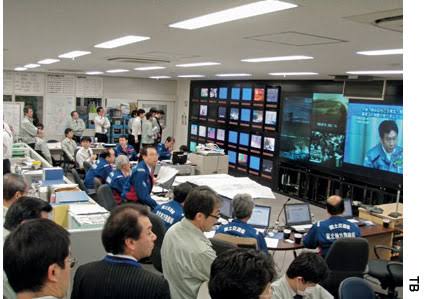There are more fears of a big earthquake along Japan’s Pacific coast, so Prime Minister Fumio Kishida has cancelled his trip to Central Asia. It was decided this way because weather experts said there was a higher chance of a “megaquake” along the Nankai Trough, which is a seismic zone known for its ability to cause big earthquakes.
An earthquake with a magnitude of 7.1 hit the southwestern island of Kyushu on Thursday, which caused Kishida to quickly change his plans. Eight people were hurt, and a tsunami warning was sent out because of the quake, which made people even more worried about the earthquake activity in the area. The fact that the Prime Minister chose to stay in Japan shows how bad things are and how committed the government is to dealing with the immediate risks that could come from aftershocks and bigger earthquakes.

Emergency Alert: Japan’s Prime Minister stays home after quake risks increase along Nankai Trough.
A well-known earthquake area is the Nankai Trough, which is off the coast of Japan in the Pacific. It has been the site of big earthquakes in the past, and new studies show that the chance of another big one has increased. Because of this warning, Kishida has put domestic safety ahead of foreign obligations, which shows how serious the seismic threats are for Japan right now.
Not only was the earthquake in Kyushu, one of Japan’s largest islands, very strong, but it also happened at a time when people are especially alert for possible earthquakes. The area has been hit by a number of big earthquakes in the past, and the most recent quake has made people even more afraid that something bigger could happen soon. The tsunami warning that came out at the same time as the earthquake made things even more urgent, and local officials acted right away to help.
Kishida’s Decision: Japan PM pulls out of Central Asia visit due to heightened earthquake threats.
The reason Kishida was going to Central Asia was to improve political and business ties with the area. But because of how things stand right now, the Prime Minister thinks it’s smarter to focus on handling the possible effects of the earthquake and getting ready for any possible rise in seismic activity. The choice shows how unpredictable natural disasters are and how quickly leaders need to change to deal with new threats.
Japan’s government is now focussing on keeping a close eye on the situation, figuring out how bad the damage is, and getting ready for any more earthquakes or seismic activity that might happen. The focus on disaster preparedness and action is very important in a country that is very prone to earthquakes because it is situated along the Pacific Ring of Fire, an area where earthquakes happen often.
In addition to his duties at home, Kishida’s decision to cancel the trip to Central Asia is part of a larger plan to protect national security and the people during natural disasters. The Japanese government is trying to help and support those who were hurt by the earthquake and to make sure the country is ready for any future earthquakes that might happen.
The fact that Kishida’s trip had to be cancelled shows how much natural disasters can affect foreign relations and global diplomacy. It reminds us that both governments and the people they serve need to be strong and flexible in order to deal with problems that come up out of the blue.
Seismic Precautions: Japan PM remains in Japan as experts warn of increased quake risks after Kyushu tremor.
Japan is still dealing with the effects of the earthquake and the possible dangers of the Nankai Trough. The main goal is to protect lives and lessen the damage from natural disasters. The Prime Minister’s choice to stay in Japan shows that he is dedicated to addressing current issues and planning for future problems in a country that is still on high alert for earthquakes.